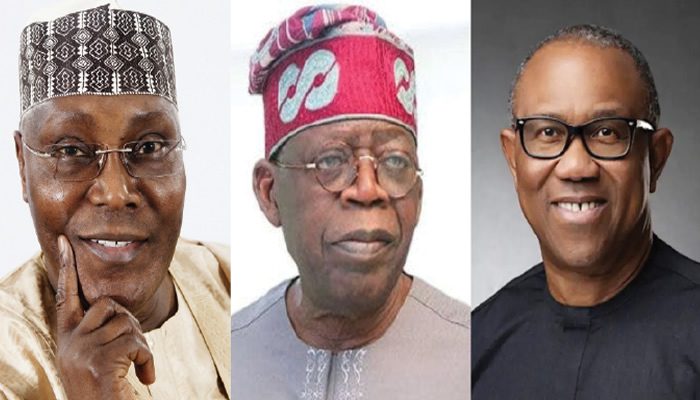
Nigerians go to the polls today, February 25, to exercise their right to vote. They are voting to elect a new President of the Federal Republic of Nigeria, as well as senators and members of the House of Representatives to form the 10th National Assembly, which will govern the country for the next four years.

The road to the 2023 general elections has been long. There were historic developments along the way, such as the Electoral Act 2022, massive registration for Permanent Voter Cards (PVC), and INEC’s seismic shift to technology-driven elections using the Bimodal Voter Accreditation System (BVAS).
This year’s poll has the highest stakes of any in recent memory. The record number of registered voters (93.5 million), the dominant demographic of 48 million youths, the intensity of the electioneering campaign, and the political fever that has gripped the Nigerian populace all indicate that the 2023 general election is very important to Nigerians.
This year’s poll has the highest stakes of any in recent memory. The record number of registered voters (93.5 million), the dominant demographic of 48 million youths, the intensity of the electioneering campaign, and the political fever that has gripped the Nigerian populace all indicate that the 2023 general election is very important to Nigerians.
The reasons are not implausible. Nigerians have endured a tortuous eight-year journey. Citizens are still bearing the scars of two recessions, increased insecurity, religious intolerance, ethnic jingoism, and a lack of good governance, among other suffocating realities. The country’s unity had been shattered, with the socio-political landscape divided along several faultlines. The gap between rich and poor has widened to unprecedented proportions, and unemployment is at an all-time high. Understandably, the country has sunk into poverty, with 133 million Nigerians living in poverty. Austerity has earned the country the unenviable title of world poverty capital.
These tribulations have driven a large number of Nigerians to seek greener pastures in other countries.
The migration syndrome (referred to as Japa) began a few years ago and has yet to abate. It has been the country’s worst brain drain in living memory. Nigeria lost a record number of medical professionals and an uncountable population of IT specialists whose exodus weakened the country in critical sectors.
More than anything, Nigerians’ plight highlighted the need for a seismic shift in leadership style and direction, as well as a complete overhaul of the country’s governance.
Election, and only election, gives us the chance to change our collective fate.
Because our situation is so dire, there is no room for emotion in choosing the best candidate. It goes without saying that we must make a wise choice at the polls.
The world has high hopes for us. World leaders, including President Joe Biden of America, have urged us to do it right and get it right. Our country will be the centre of global attention for the next 48 hours.
There has been an ugly backdrop of violence, such as the assassination of the Labour Party senatorial candidate in Enugu, Oyibo Chukwu, just 48 hours before the election, and arrests of people with unusually large wads of cash in Lagos, Rivers, and Gombe, which were intended for vote buying, less than 24 hours before the election.
Today, we must stand united against any anti-election acts that could derail this critical election.
It goes without saying that, despite our differences in party and candidate preferences, we share a common desire: we want purposeful leadership. The country has survived the past four years’ trials thanks to its citizens’ legendary resilience, dubbed “the Nigerian spirit.”
It should also be noted that if we fail to hold a peaceful, free, fair, and credible election, our desire for change may become meaningless and a mirage.
On Wednesday, all 18 registered political parties signed a peace pact stating that all parties must accept the results of elections or seek redress through legal means. Following that, some of the leading candidates issued a statement to their supporters urging them to avoid violence and other acts that could jeopardise the election.
In reality, the election is in our best interests.
Looking at the presidential candidates and their running mates, as well as their diverse supporters, we cannot help but conclude that Nigeria is a united country, albeit one filled with resentment born of frustration. We must, however, keep in mind that in a democracy, elections remain the only valid and agreeable means of resolving our grievances.
Nigerians are now at a tipping point. We must not waste this opportunity. According to the Electoral Act, we must all exercise our voting rights. To make our votes count, we must be determined. This includes making certain that we do not obstruct others from exercising their franchise as well.



